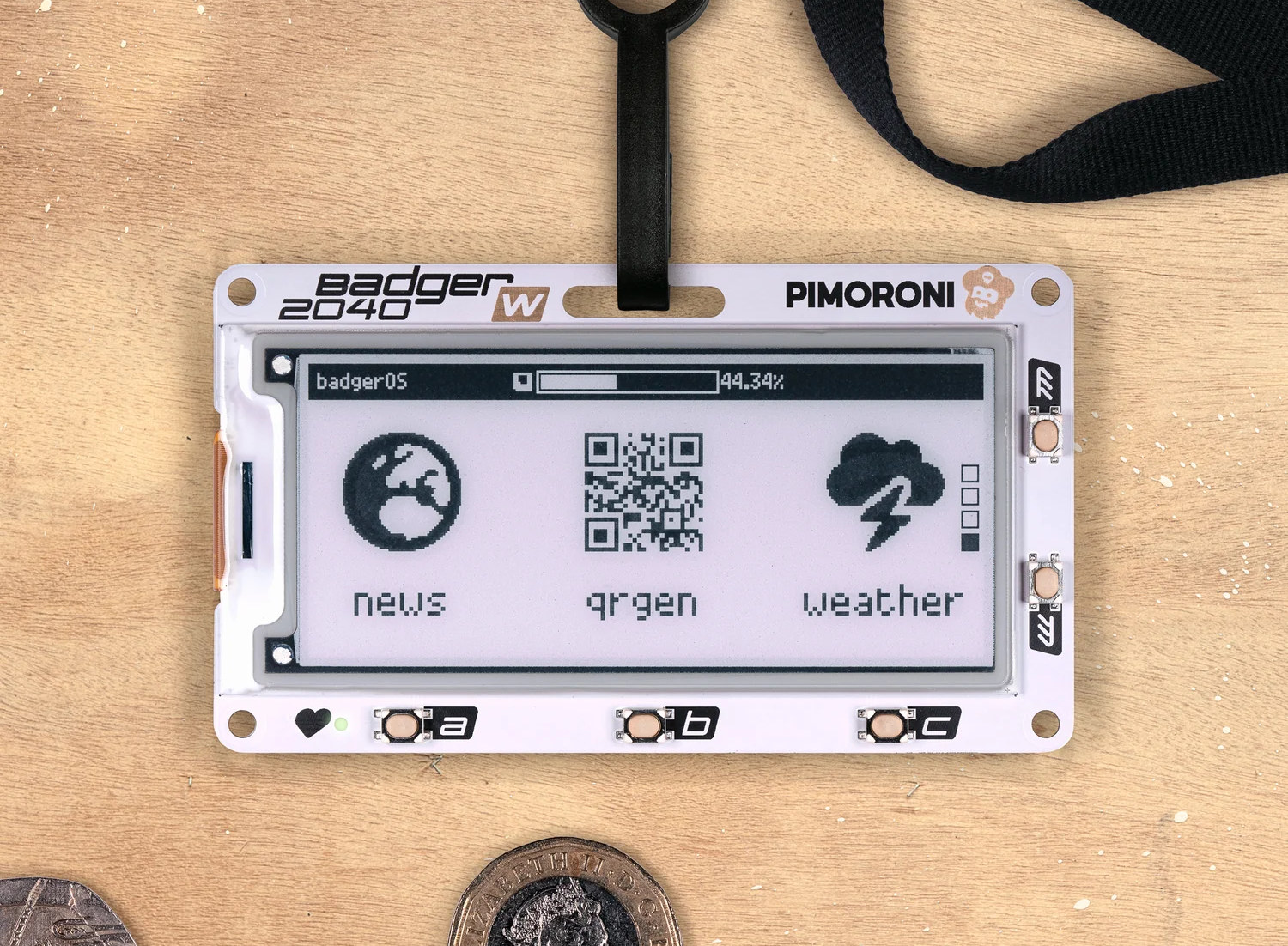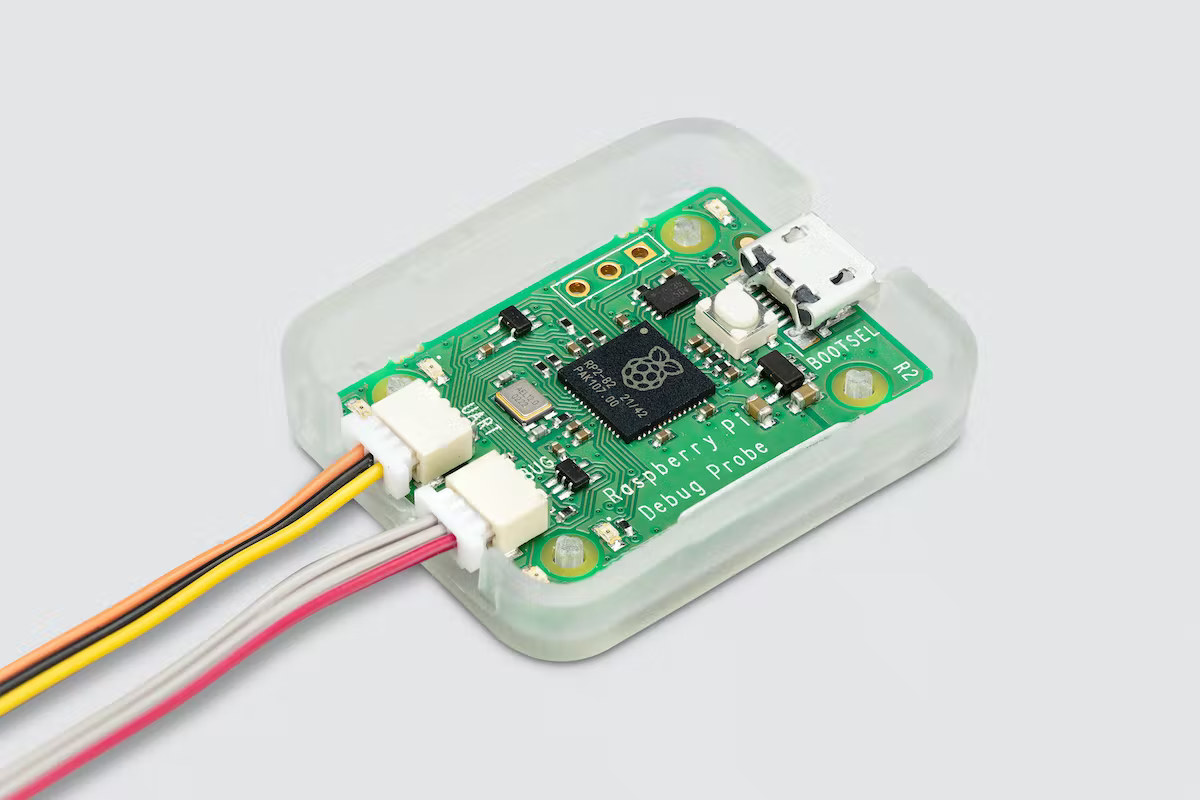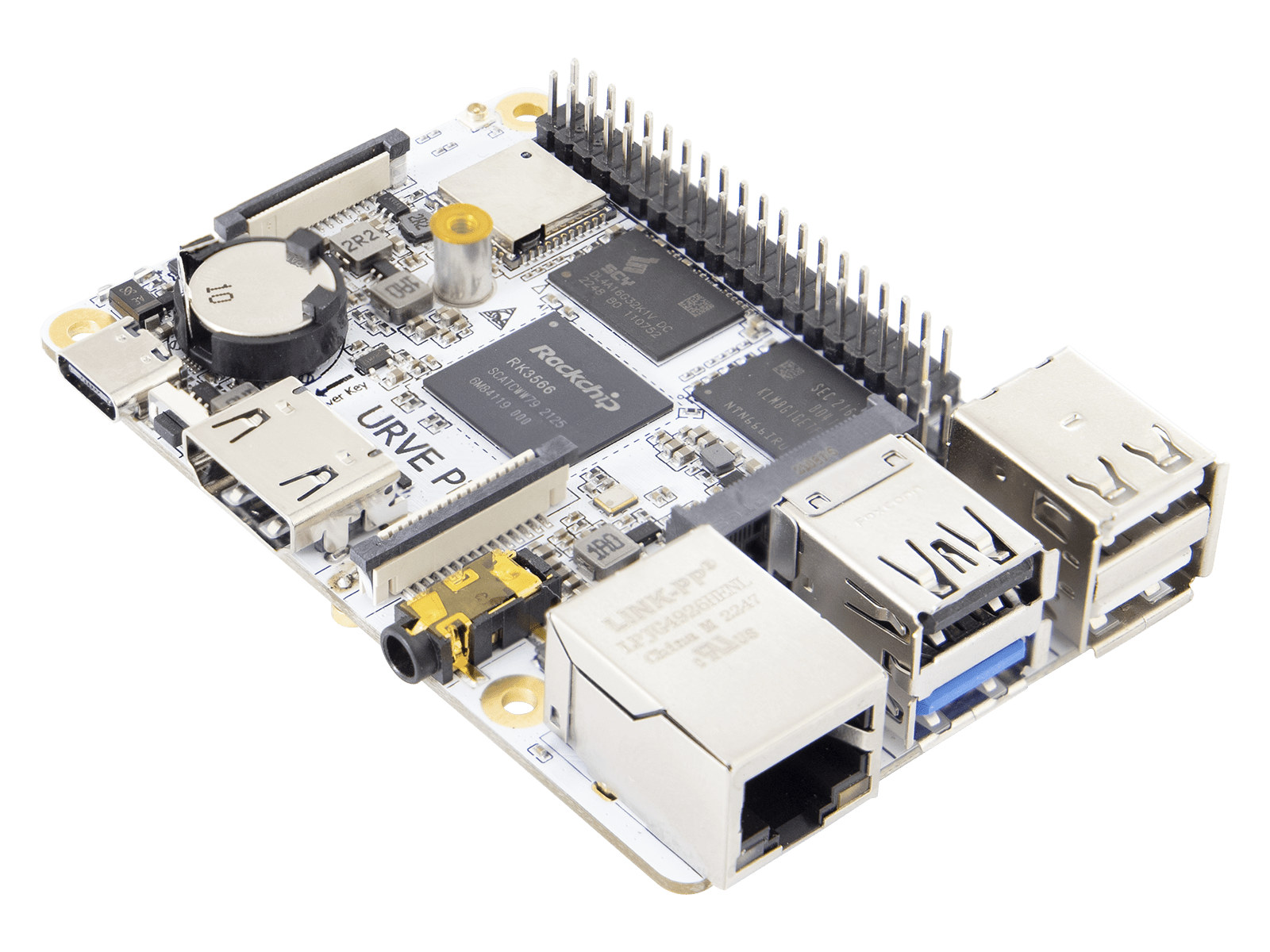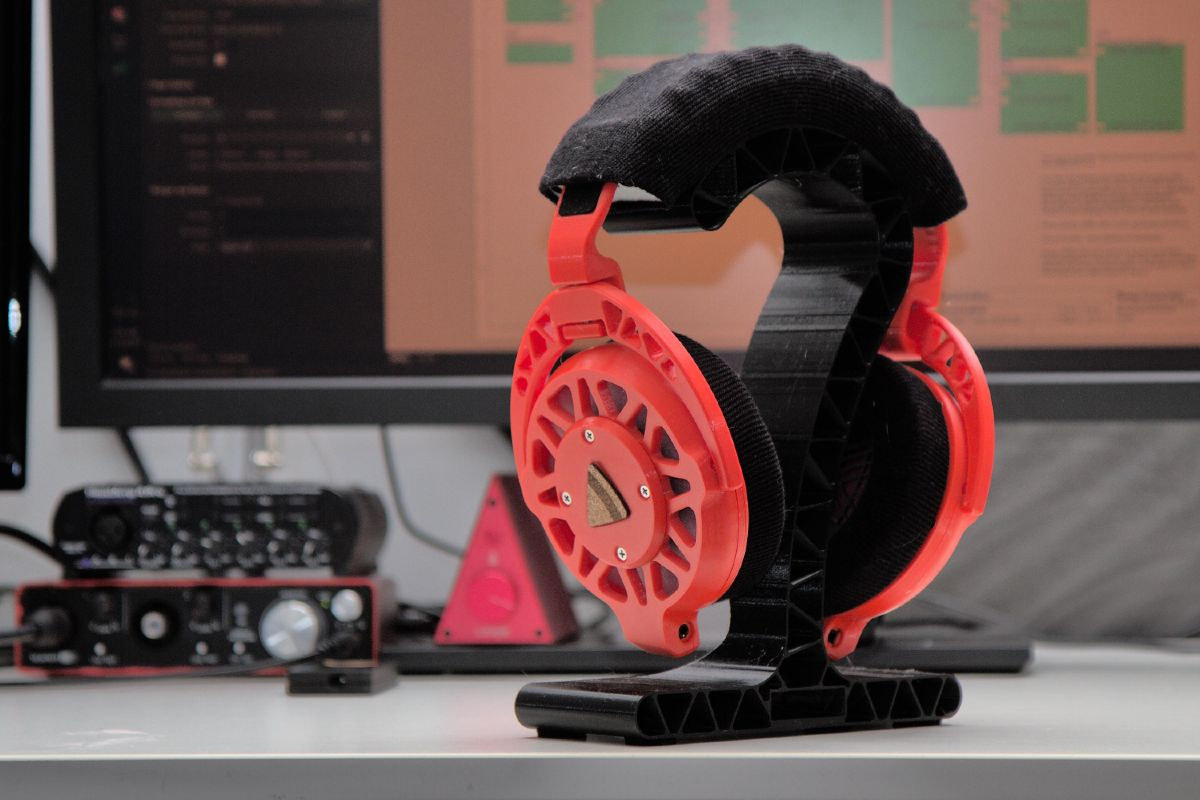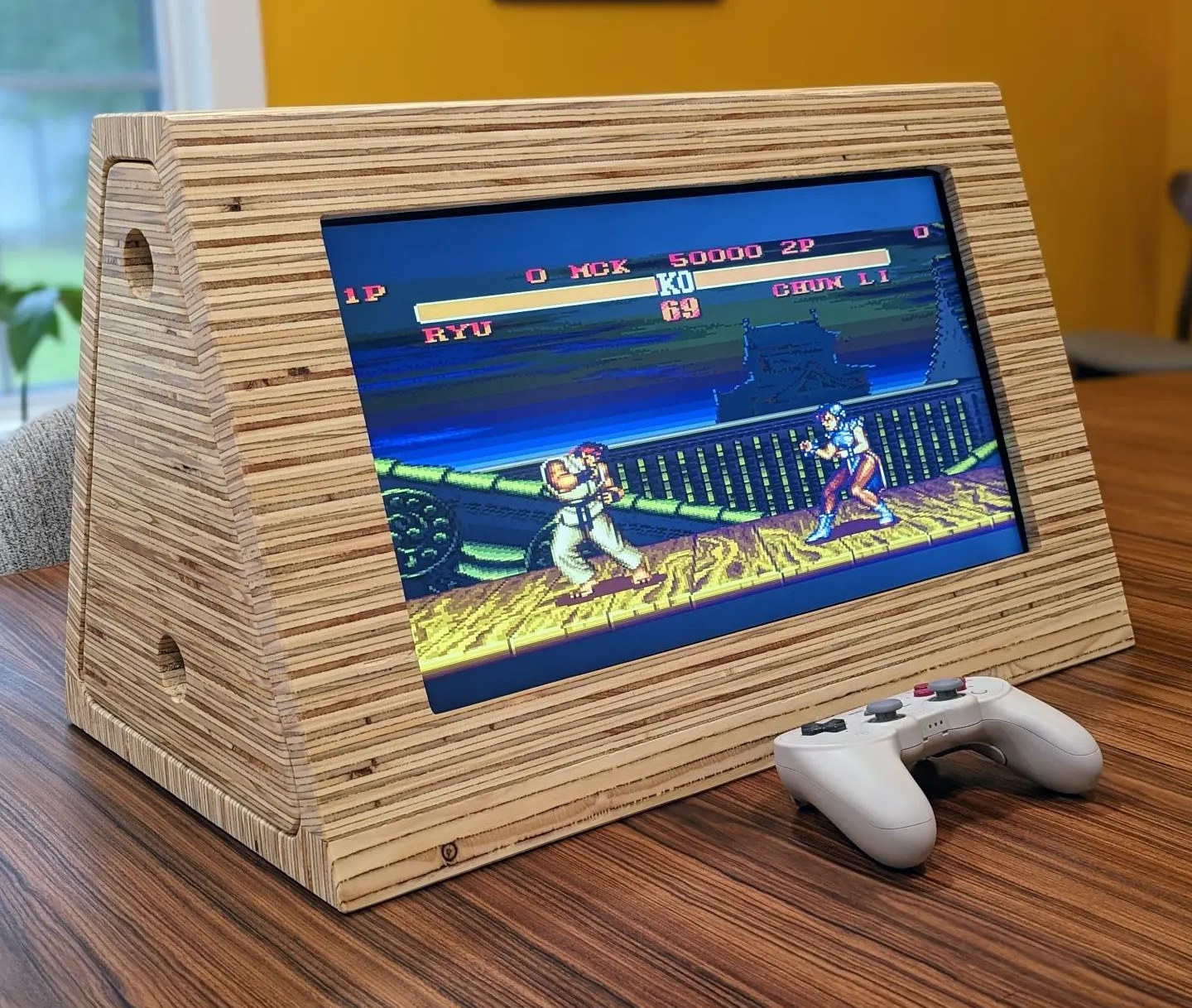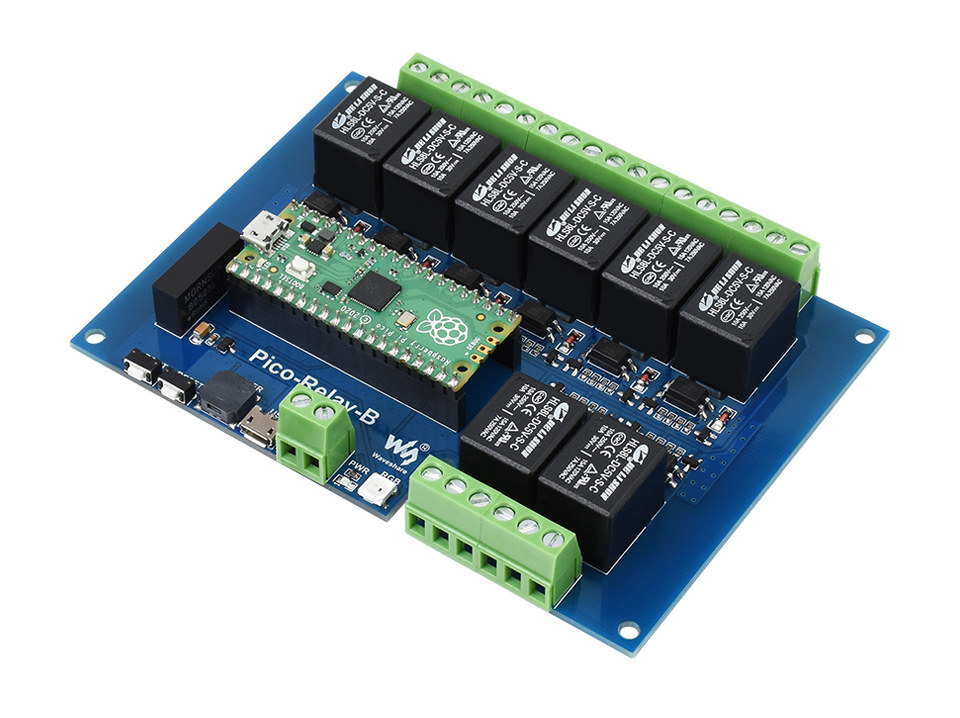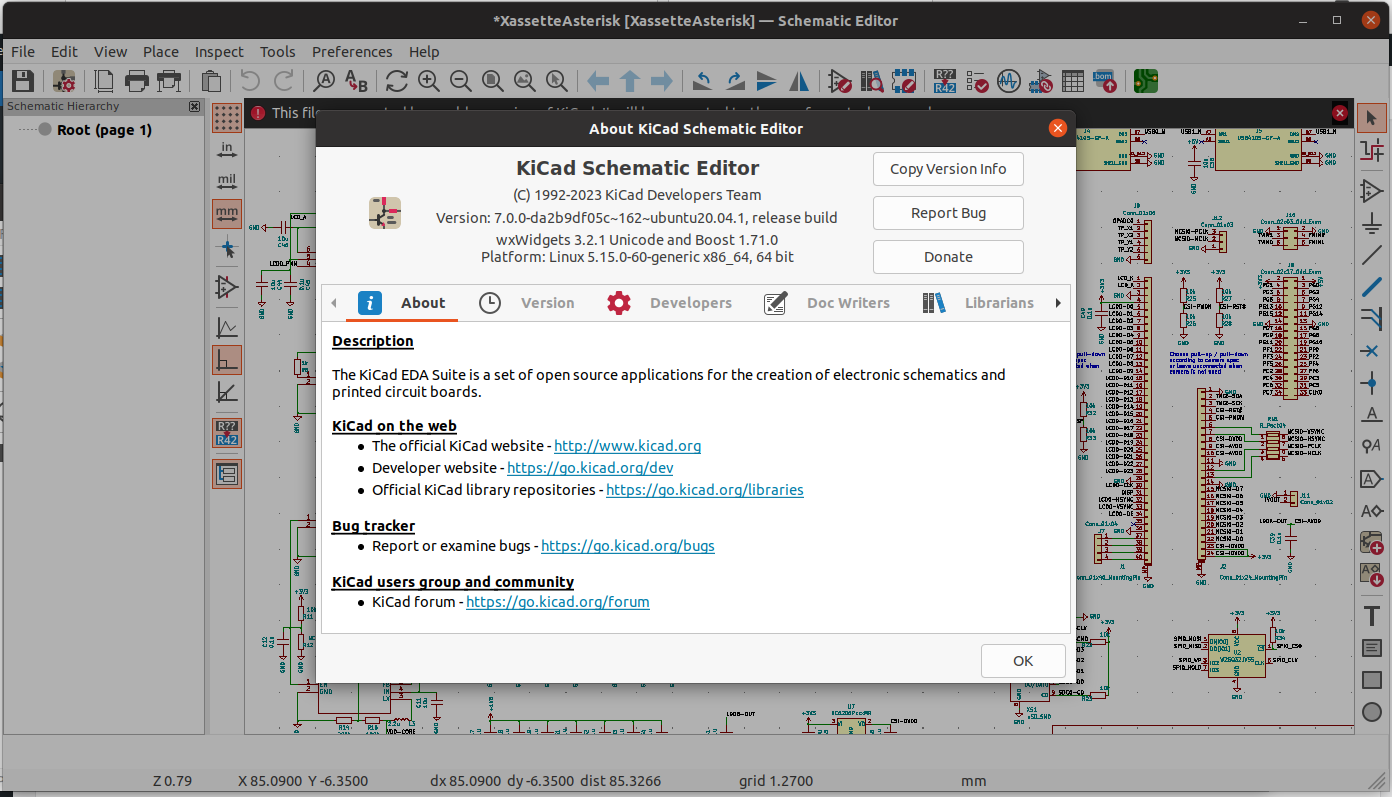Pimoroni Badger 2040 W wireless programmable e-Paper badge comes with a 2.9-inch black & white E-Ink display and a Raspberry Pi Pico W board for WiFi (and Bluetooth) connectivity. It is an update to the Pimoroni Badger 2040 with the exact same display, but instead of using a Raspberry Pi RP2040 microcontroller, Pimoroni fitted a Raspberry Pi Pico W on the back of the board, probably to avoid going through FCC and CE certifications. Badger 2040 W specifications: MCU board – Raspberry Pi Pico W board with: Raspberry Pi RP2040 dual-core Arm Cortex M0+ running at up to 133Mhz with 264kB of SRAM Storage – 2MB QSPI flash Wireless – 802.11b/g/n WiFi 4 and Bluetooth Classic+LE with ABRACON onboard antenna (Infineon CYW43439 connected over SPI) Display – 2.9-inch B&W E-Ink display with 296 x 128 pixels resolution, ultrawide viewing angles, ultra-low power consumption; Dot pitch – 0.227 x 0.226 mm […]
Auspicious Machine modular handheld Linux PC with keyboard takes various Arm-based SoMs
The “Auspicious Machine” may look like a Blackberry phone, but it’s actually a handheld Linux PC with a built-in QWERTY keyboard and a 3.5-inch display that can be powered by a range of system-on-modules (SoM). The computer, whose name can also be translated as the “Auspicious Phone”, can be used as a Linux terminal with GPIO control, and for gaming with Linux distributions such as Batotera or RetroBat with the D-Pad and ABXY buttons found on the device. Auspicious Machine specifications: Supported SoMs Bigtreetech CB1 with Allwinner H616 quad-core Cortex-A53 processor and 1GB DDR4 Raspberry Pi CM4 with Broadcom BCM2711 quad-core Cortex-A72 processor, up to 8GB LPDDR4, up to 32GB eMMC flash Radxa CM3 with Rockchip RK3566 quad-core Cortex-A55 processor, up to 4GB LPDDR4, up to 64GB eMMC flash Banana Pi BPI-CM4 with Amlogic A311D octa-core Cortex-A73/A55 processor with 4GB LPDDR4 and 16GB eMMC flash Storage – MicroSD card socket […]
Raspberry Pi Debug Probe eases bare metal development for $12
The Raspberry Pi Debug Probe is a USB serial adapter based on the Raspberry Pi RP2040 microcontroller and designed to debug the Raspberry Pi Pico, third-party RP2040 boards, and pretty much any Arm board through SWD and/or UART interfaces. The main advantage over a typical USB-to-serial adapter is the presence of a Serial Wire Debug (SWD) bridge used for bare metal code development and debugging through tools such as OpenOCD. The Raspberry Pi Debug Probe specifications: MCU – Raspberry Pi RP2040 dual-core Cortex-M0+ microcontroller @ 133 MHz with 264KB SRAM Storage – 2MB SPI flash (W25Q16JVUXIQ) Debug interfaces 3.3V Serial Wire Debug (SWD) 3-pin JST connector conforming to the Raspberry Pi Debug Connector Specification and compatible with the CMSIS-DAP standard 3.3V serial (UART) 3-pin JST connector USB – Micro USB port to connect to the host Misc BOOTSEL button for flashing firmware to the debug board Unpopulated 3-pin header with […]
URVE Board Pi RK3566 SBC comes with RTC, eMMC flash, and M.2 SSD socket
URVE Board Pi is a single board computer (SBC) powered by a Rockchip RK3566 quad-core Cortex-A55 processor, 2GB RAM, 8GB eMMC flash, plus the same interfaces as the Raspberry Pi 3 Model B as well as an RTC with a coin-cell battery and an M.2 SSD socket. More specifically, the Rockchip RK3566 board comes with a 4Kp60 capable HDMI 2.0 port, a MIPI DSI/LVDS display interface, a MIPI CSI camera connector, Gigabit Ethernet, four USB 3.0/2.0 ports, a dual-band WiFi 5.0 and Bluetooth 4.2 wireless module, and the usual 40-pin GPIO header. URVE Board Pi specifications: SoC – Rockchip RK3566 Quad Core Cortex-A55 processor @ 1.8 GHz with Arm Mali-G52 GPU, 0.8 TOPS NPU System Memory – 2GB LPDDR4 (up to 8GB) Storage 8GB eMMC flash (up to 128GB) M.2 PCIe socket for 2242 NVMe SSD MicroSD card slot Video Output HDMI 2.0 with HDCP 1.4/2.2, up to 4Kp60 4-lane […]
Ploopy – 3D printed open-source hardware headphones feature Raspberry Pi RP2040 MCU, TI PCM3060 24-bit DAC
I don’t think I’ve ever written about open-source hardware headphones. But that’s precisely what Ploopy offers with an amplifier based on a Raspberry Pi RP2040, a Texas Instruments PCM3060 24-bit DAC, and an amplifier circuit, as well as 3D printed parts and open-source firmware written in C. As we’ll see further below the project is reasonably well documented, and you can either build it from scratch, purchase a fully-assembled kit, or something in the middle. I suppose you could even do some knitting since woven covers are part of the build just in case making your own PCBs and 3D printing parts are not your things. The electronics are comprised of two boards: The Gould amplifier board with the Raspberry Pi RP2040, Texas Instruments PCM3060 24-bit 96/192 kHz DAC, and several TI OPA1688 audio operational amplifiers The Mazzoleni driver flex boards going into the left and right rings with a […]
Raspberry Pi 400 powers dual-display retro-gaming console
“Block after Block” has designed a dual-display tabletop retro-gaming console using plywood edge grain and a Raspberry Pi 400 keyboard PC that allows players to physically face each other during a fight or other gameplay. While there’s a galore of projects based on Raspberry Pi SBCs, the Raspberry Pi 400 keyboard PC is more like a consumer product due to its form factor, but Block after Block integrated the PC into its own retro-gaming console which involved a lot of woodworking skills and installing RetroPie on the Pi 400 device. This DIY project mostly involves spending time in a workshop cutting wood, and once you’re done with this part, it should be pretty straightforward. The following items are required for the project: A Raspberry Pi 400 keyboard PC Two monitors (second-hand monitors will do) An HDMI splitter to mirror the output from the Pi 400 along with a micro HDMI […]
Control 8 relays with the Raspberry Pi Pico using PicoRelay8 or Pico-Relay-B
8086 Consultancy’s PicoRelay8 is a baseboard for the Raspberry Pi Pico (W) board equipped with eight 28V DC / 10A Normally Open relays that be used for all sorts of automation projects, while Waveshare Pico-Relay-B also supports eight relays with both DC and AC loads and comes with some extra features. PicoRelay8 PicoRelay8 board specifications: Supported MCU board – Raspberry Pi Pico or Pi Pico W, and it may also work with “mostly” compatible boards such as the Banana Pi BPI-Pico-RP2040 or BPI-PicoW-S3, WeAct RP2040, and others as long as all GPIO used on the PicoRelay8 are exposed on the same pins. Relays 8x HF3FF/005-1HST relays rated for 28V DC/10A, as well as 10A/250V AC and 15A/125V AC, but the board is not designed to get power from the mains (safety-wise), so it’s only really suitable for DC loads Each relay has a 2-pin terminal block attached to it. GPIO […]
KiCad 7.0.0 release – Custom fonts, text boxes, SpaceMouse, crash reporting, and much more
KiCad 7.0.0 open-source EDA software has just been released with a range of new features from custom fonts to 3Dconnexion SpaceMouse integration to opt-in Sentry crash reporting, and many more. It took over three years between KiCad 5.0.0 and KiCad 6.0.0 announcements, but only a little over a year for the release of KiCad 7.0.0. Did KiCad developers acquire superhuman abilities or did AI get involved in the development somehow? Most probably not, and instead they change the release schedule to a yearly one, so we should get annual releases of the open-source EDA suite going forward, with KiCad 8.0.0 to be released in Q1 2024. Some notable changes to KiCad 7.0 include: Custom Fonts support is now available in the schematic, PCB, and worksheet editors to allow the use of any system font. Text box support was added in both the schematic and PCB editors. 3Dconnexion SpaceMouse support in […]


